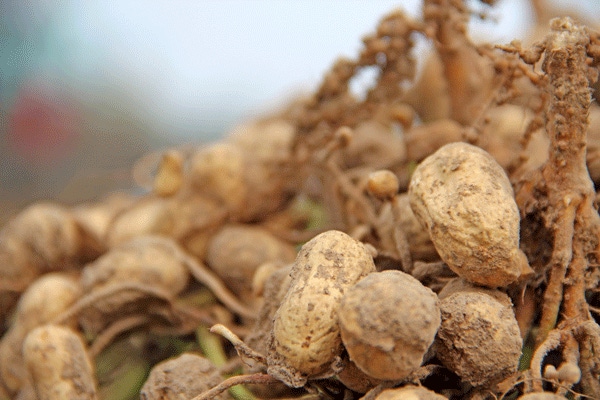
Sunland Inc., the nation's largest organic peanut butter processor, resumed operations at its Portales, N.M., plant May 21.Company Vice President Katalin Coburn said plant officials are excited to be back after a salmonella outbreak linked to Sunland products last fall caused the plant to be shuttered for months.Texas grower Brent Nelson said the closing of the plant caught all parties by surprise.

Sunland Inc., the nation's largest organic peanut butter processor, has announced they are one step closer to getting their peanut products back on grocery market shelves after resuming operations May 21.
Company Vice President Katalin Coburn reports production is back in operation and plant officials are excited to be back after a salmonella outbreak linked to Sunland products last fall caused the plant to be shuttered for months.
“I really can’t predict that just yet [when first shipments will ship]", Coburn said. “But I would estimate products will be back on the shelf within a month.”
She said it shouldn’t be too long until people see Sunland’s products back at retail locations nationwide.
The U.S. Food and Drug Administration shut down plant operations last fall after reports that Sunland products had been connected to 41 cases of salmonella in 20 states. FDA inspectors cited the company after a month-long investigation, saying salmonella had been discovered in 28 locations throughout the plant and in several nut butter samples.
Like what you are reading? Subscribe to Southwest Farm Press Daily and get the latest news right to your inbox!
Company officials say they have been working closely with FDA inspectors to correct all problems before getting approval to resume processing operations. The company also hired an independent troubleshooter to help develop a comprehensive plan of sanitation to correct problems.
Registration reinstated
In late December, Sunland announced that the food facility registration for its Portales, N. M., location had been reinstated. That followed an agreement reached between federal inspectors and plant officials that called for an independent, third party inspection of the facility to determine if the problems discovered from previous inspections had been corrected.
In January, Sunland put the majority of employees laid off following the recall last year back to work and soon thereafter began making payment arrangements with New Mexico and Texas peanut growers who were owed money for peanuts sold to the company but not yet processed when FDA shuttered the plant.
Texas grower Brent Nelson said the company had been good to growers by making partial payments initially and plans for follow up payments "as possible." He said the closing of the plant caught all parties by surprise and created many hardships for not only the plant but for growers as well.
“Our peanut harvest last year was one of the best we have had, and not just for me but for most peanut farmers across the region. We depend on the Portales plant and don’t have a lot of options for selling our crop outside of Sunland,” he said earlier this year.
Sunland limits its peanut purchases to high grade Valencia varieties and has long maintained a working relationship with regional growers, some of which were quick to defend the company after FDA inspections last year.
Nelson says there was talk among growers that accuses the FDA of taking the action “to set an example” because of a rash of salmonella outbreaks in recent years all across the country and said he believes the problem may not have been as widespread as early reports indicated.
Exposed peanuts
Among other violations, FDA claims they discovered peanuts inside uncovered truck trailers at the plant that were subject to the open elements and in at least some cases were exposed to bird droppings.
“Just a few days before that these peanuts were laying exposed in the field. Like it or not, that’s part of farming. You can’t control the rain from falling or the birds that fly over a field,” Nelson noted. “It’s been my experience that Sunland is responsive to the farmers who provide them their peanuts, and I know a lot of growers that think this whole business of FDA violations may have been blown out of proportion. Some of the violations may sound worse than they were.”
The closing of the plant has also created a hardship for displaced workers which in turn affected the local economy. The plant is one of the largest employers in Roosevelt County. The Portales City Council recently authorized $150,000 in economic development funds for Sunland to cover some of the costs incurred as a result of its sanitation plan, according to Portales City Manager Tom Howell.
“The purpose of that money was to help them get through requirements of the FDA,” Howell said.
Roosevelt County Community Development Director Doug Redmond, who favored the issuance of economic development funds, says the company now has 100-plus employees back at work and plans on adding an additional 40 employees in the near future.
Coburn says the company is happy to be back in business again to help the community and to meet the needs of retailers who have been anxious to get Sunland's products back on grocery market shelves as soon as possible.
You may also like:
Texas peanut industry working together to help Oklahoma neighbors
Drought, early season pests concern HP cotton experts
New farm bill to provide ‘balanced’ risk management tools for nation’s farmers
About the Author(s)
You May Also Like



